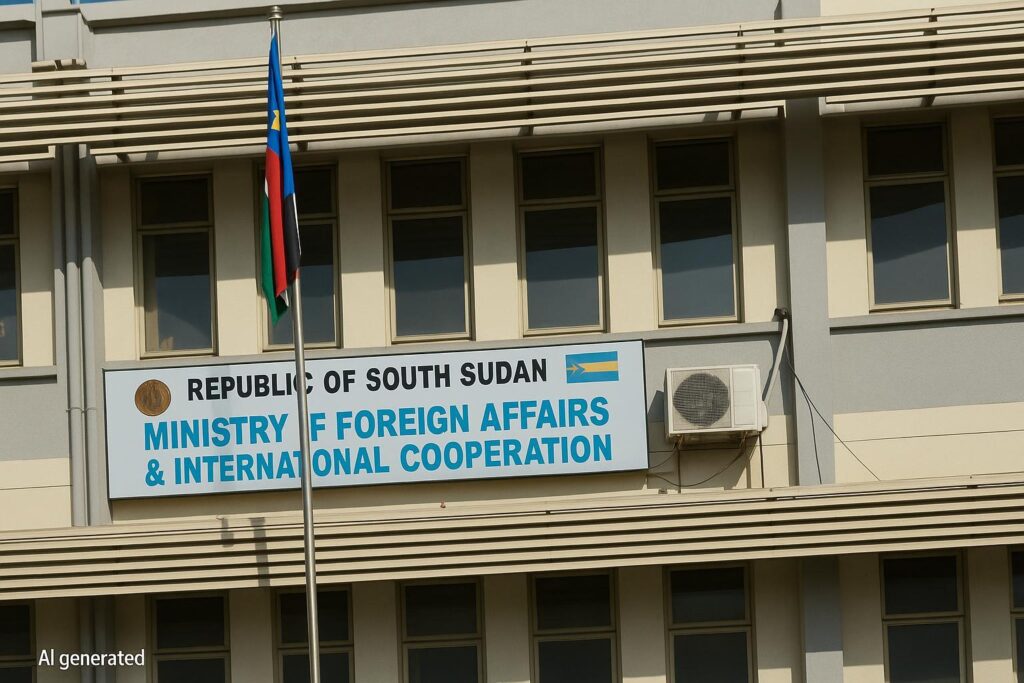Official Denial in Juba
South Sudan’s Ministry of Foreign Affairs has publicly rejected reports alleging secret talks with Israel over relocating Palestinians from Gaza to Juba. A late-night communiqué labeled the claims “baseless” and stressed that no such proposal forms part of the country’s foreign-policy agenda.
The statement, signed by Acting Foreign Minister Deng Dau, comes amid a regional news cycle dominated by Gaza developments. Officials say the clarification aims to pre-empt speculation that could strain South Sudan’s delicate diplomatic ties in the Horn of Africa and beyond.
Origins of the Resettlement Rumor
Earlier in the week, the Associated Press cited unnamed Israeli officials discussing possible third-country options for Gazans. South Sudan, which has previously accepted small humanitarian caseloads, was briefly mentioned, sparking social-media debate and commentary from international law scholars.
Israeli government spokespeople neither confirmed nor denied the leak, fuelling further conjecture. Analysts in Tel Aviv suggested South Sudan’s English-speaking environment and prior ties with Israel made it a convenient item in internal policy drafts, yet no formal outreach reportedly occurred.
Diplomatic Balancing Act
Since gaining independence in 2011, Juba has pursued a pragmatic foreign policy, courting both Western partners and Middle Eastern investors. Any sudden involvement in the Israeli-Palestinian file could recalibrate that balance, particularly with Arab League members critical of relocation schemes.
South Sudan also chairs the Nile Basin Initiative this year, a role demanding diplomatic tact. Officials fear that appearing to facilitate population transfer from Gaza could overshadow efforts to mediate regional water disputes and attract badly needed infrastructure financing.
Humanitarian and Legal Dimensions
Relief agencies note South Sudan already hosts over two million internally displaced citizens due to intermittent conflict. ‘Adding a large external caseload would stretch capacity to the limit,’ warns Daniel Arop, coordinator at a Juba-based NGO focusing on camp management.
International humanitarian law prohibits forced transfer of protected populations. Legal scholar Amal Deng argues any voluntary resettlement plan would require informed consent, security guarantees, and robust funding — benchmarks unlikely to be met swiftly under current geopolitical conditions.
Expert Commentary and Public Sentiment
Dr. Jok Madut Jok, a South Sudanese political scientist, says the rumors highlight how smaller states can become ‘geopolitical placeholders’ in great-power strategies. He believes transparent communication from the government has helped prevent misinformation from inflaming domestic opinion.
On Juba’s streets, university students interviewed voiced relief. ‘We struggle with floods and food prices; bringing in more refugees would be tough,’ said Nyandeng Kulang, a biology major. Yet most added they sympathize with civilians trapped in Gaza’s conflict.
Path Forward for Juba
Government advisers indicate no further statements are planned unless additional reports emerge. For now, attention returns to the domestic agenda: drafting a permanent constitution, preparing for long-awaited elections, and bolstering oil revenue amid volatile global markets.
Regional observers argue the swift denial demonstrates growing institutional maturity in South Sudan’s foreign ministry. ‘Speed and clarity matter in rumor management,’ notes Kampala-based analyst Rose Mutabazi, predicting minimal diplomatic fallout between Juba and Jerusalem.


